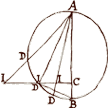
Max Planck Institute for the History of Science
Encyclopedia

Berlin
Berlin is the capital city of Germany and is one of the 16 states of Germany. With a population of 3.45 million people, Berlin is Germany's largest city. It is the second most populous city proper and the seventh most populous urban area in the European Union...
was established in March 1994. Its research is primarily devoted to a theoretically oriented history of science
History of science
The history of science is the study of the historical development of human understandings of the natural world and the domains of the social sciences....
, principally of the natural science
Natural science
The natural sciences are branches of science that seek to elucidate the rules that govern the natural world by using empirical and scientific methods...
s, but with methodological perspectives drawn from the cognitive science
Cognitive science
Cognitive science is the interdisciplinary scientific study of mind and its processes. It examines what cognition is, what it does and how it works. It includes research on how information is processed , represented, and transformed in behaviour, nervous system or machine...
s and from cultural history
Cultural history
The term cultural history refers both to an academic discipline and to its subject matter.Cultural history, as a discipline, at least in its common definition since the 1970s, often combines the approaches of anthropology and history to look at popular cultural traditions and cultural...
. All three departments of the Institute aim at the construction of a 'historical epistemology' of the sciences.
Historical epistemology deals with the historical development of knowledge and the technical, social, intellectual, and cultural processes surrounding the acquisition of knowledge in context. Building upon detailed studies from the history of particular sciences, historical epistemology investigates the emergence and evolution of key concepts such as 'number', 'force', 'motion', 'gene', 'organism', and 'field', as well as central categories and practices like 'representation', 'probability', 'causality', 'experiment', 'deduction', 'determinism', and 'objectivity'. The combination of highly specific historical inquiries within this more global framework of inquiry permits comparisons and generalizations spanning numerous disciplines.
The institute is affiliated with the Max Planck Society
Max Planck Society
The Max Planck Society for the Advancement of Science is a formally independent non-governmental and non-profit association of German research institutes publicly funded by the federal and the 16 state governments of Germany....
and is located in the Berlin
Berlin
Berlin is the capital city of Germany and is one of the 16 states of Germany. With a population of 3.45 million people, Berlin is Germany's largest city. It is the second most populous city proper and the seventh most populous urban area in the European Union...
neighborhood of Dahlem
Dahlem (Berlin)
Dahlem is a locality of the Steglitz-Zehlendorf borough in southwestern Berlin. Until Berlin's 2001 administrative reform it was a part of the former borough of Zehlendorf. Dahlem is one of the most affluent parts of the city and home to the main campus of the Free University of Berlin with the...
.

